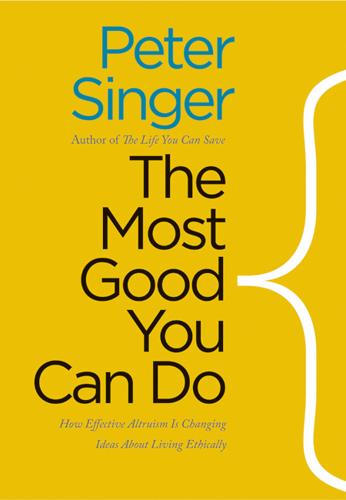
The Most Good You Can Do: How Effective Altruism Is Changing Ideas About Living Ethically
by
Peter Singer
Published 1 Jan 2015
Other quotes and details are taken from her emails to the author, March–July 2014. Chapter 4. Earning to Give 1. I owe the reference to Wesley to Jeff Kaufman, who has discussed the history of the idea of earning to give in three postings: http://www.jefftk.com/p/history-of-earning-to-give; http://www.jefftk.com/p/history-of-earning-to-give-ii; and http://www.jefftk.com/p/history-of-earning-to-give-iii-john-wesley. 2. Associated Press, “Former Telecom Millionaire Giving Fortune to Children’s Causes,” http://www.ksl.com/?nid=148&sid=88335. 3. http://80000hours.org/earning-to-give; the point about replaceability seems to have been first made by Brian Tomasik, in “Why Activists Should Consider Making Lots of Money” (2006), http://www.utilitarian-essays.com/make-money.html. 4.
…
A Brookings Institution study has pointed out that millennials are much more concerned about corporate social responsibility than any previous generation, and as employees, they want “their daily work to be part of, and reflect, their societal concerns.”20 There are many ways of achieving that integration between work and social values. For the right person in the right circumstances, earning to give is one of them. 5 Other Ethical Careers Earning to give is a distinctive way of doing good. For those with the abilities required for successfully earning to give, including the ability to find the work sufficiently interesting to do it well and the character to maintain a strong commitment to giving much of what one earns to effective charities, earning to give can be an ethical career choice. Nevertheless, Will MacAskill does not claim that earning to give is always or even usually the best option. Rather, he thinks we should see it as a baseline against which to compare other possible ethical careers.1 The Advocate Will isn’t in finance.
…
And if it is, is there a parallel with what those who earn to give are doing when they choose to go into a profession they do not regard as intrinsically desirable? Investment banking is not morally on a par with developing chemical weapons. Nor would people who earn to give be deliberately working against the aims of their employer, as George would have been. On the contrary, they would want to do as well as possible so as to receive the highest possible salary and bonus and be able to donate the most. Nevertheless, to fit into the ethos of the organization in which they want to succeed, people earning to give may have to disguise their views about the intrinsic value of their work.
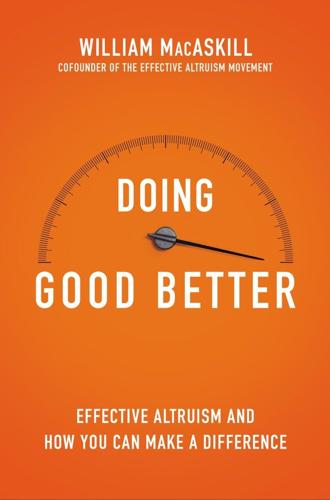
Doing Good Better: How Effective Altruism Can Help You Make a Difference
by
William MacAskill
Published 27 Jul 2015
We should therefore think that the £8 million figure is an underestimate of her expected impact. However, £8 million is considerably more than she could donate if she earned to give. Even given our pessimistic assumptions, for Laura, politics therefore seems to have a greater expected impact than earning to give. She wanted to have as big an impact as she could, so, in part on the basis of this reasoning, she chose to enter a political career. The conclusion that earning to give isn’t always the highest-impact career path isn’t a conclusion that’s unique to Oxford PPE graduates. In chapter nine we’ll discuss several other career paths that have a low probability of success but a very high upside given success, such as research and entrepreneurship, that seem highly competitive with earning to give.
…
He was unsure whether to earn to give or to take up a position at GiveWell. When he asked them how much they’d be willing to pay to have him as an employee, he found it was considerably beyond the amount he could donate if he earned to give. There are also personal reasons why working for nonprofits might be a good option. For example, if you are fired up by a specific cause, it might feel important to you to be in the midst of the action. Alternatively, you might worry that your values will wane if you pursued something with either indirect benefits, like earning to give, or later benefits, like building skills.
…
If you can find a company that is benefitting many people, or is correcting market failure in some way (such as by developing renewable alternatives to fossil fuels), this might be an effective means to have an impact. I’ll discuss the potential of for-profits more under the Entrepreneurship section later in this chapter. Earning to give Earning to give enables you to start having a significant positive impact via the very most cost-effective organizations right from the beginning of your career. Often, it also allows you to build valuable skills and a valuable network that will prove useful later on in life. If you’re aiming to pursue earning to give over the long term, it’s important to work out the long-run earning potential of different careers. On the Internet, you can often find the pay at a given level of experience within a field, but it’s harder to find out how difficult it is to get to that level of experience, and how high-paying the alternatives are for those who move out of that career type.
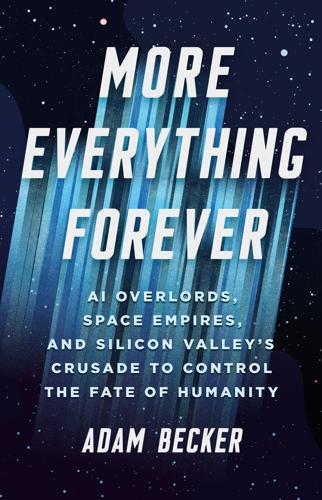
More Everything Forever: AI Overlords, Space Empires, and Silicon Valley's Crusade to Control the Fate of Humanity
by
Adam Becker
Published 14 Jun 2025
Despite his insistence that the ends don’t always justify the means for effective altruists, at times MacAskill has come close to endorsing a version of EA that sounds remarkably like a new gospel of wealth, giving the wealthy a patina of moral rectitude, especially when he’s talking about earning to give. “Obviously there’s some worry that you’re disconnected and lose your values, but I’m coming around to the idea that the rate of doing that via earning to give is no worse than the rate of doing that through direct impact,” he says. “If you’re earning to give, you’re in a cushy lifestyle—you’re giving away 50 percent, but you’re still on a nice salary—working with very smart people, and you know that the impact you’re having is absolutely huge because you’re able to donate to these very well-evidenced charities.”54 Earn to give is predicated on the idea that the source of the money just isn’t as important as the causes it goes to.
…
What I didn’t know was that several years earlier, in 2012, a similar conversation had happened on the other side of the country, between Will, a young philosopher specializing in ethics, and Sam, a junior at MIT. Sam was trying to figure out what to do with his life, and at an Au Bon Pain next to Harvard Square, Will pitched him on a central concept of effective altruism: “Earn to give,” the idea, roughly, that one of the best ways to make the world a better place is to make a large amount of money, and then donate much of that money to worthy causes that help people.1 Sam nodded, saying simply, “Yep. That makes sense.” He took Will’s advice—and his philosophy—and ran with it.
…
When they started Giving What We Can, “we had twenty-three members, and most of them were friends of Toby’s and mine,” MacAskill recalled.10 MacAskill also cofounded another organization, 80,000 Hours—named for the amount of time spent over the course of a lifetime at a typical forty-hour-a-week job—which focused on providing research-based advice on the best careers to pursue to help other people, including the idea of earning to give.11 Meanwhile, MacAskill himself was thriving. In 2015, his first book, Doing Good Better, was published, a 272-page argument for the EA approach to charitable giving. That same year, at age twenty-eight, he became an associate professor of philosophy at Oxford, one of the youngest associate philosophy professors in the world at the time.12 He cofounded CEA, yet another nonprofit organization, which subsumed Giving What We Can and 80,000 Hours into one institutional home.13 His organizations gave away $9.8 million in grants in 2019 alone, and $2.5 billion in donations had been pledged by over seven thousand people by 2022, the year his second book came out.14 That book, What We Owe the Future, advocates for something much less straightforward than the benefits of malaria nets in the developing world.
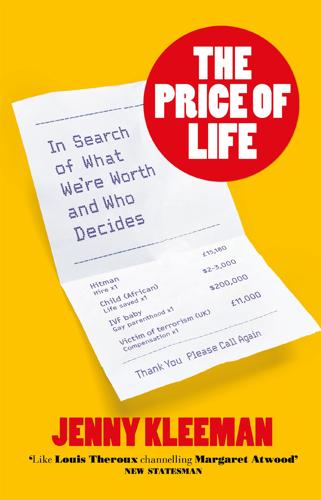
The Price of Life: In Search of What We're Worth and Who Decides
by
Jenny Kleeman
Published 13 Mar 2024
Will was unapologetic: he’d save the Picasso. The same cold logic is in play when Will gives career advice. In 2011, he founded 80,000 Hours, a podcast and a careers advice service named after the amount of time a person will spend at work over their lifetime. One of the ideas it promotes is called ‘earning to give’, which argues that, if you have an appropriate skill set, you will do more good if you choose a career in finance rather than the charity sector, because an investment banker who gives 50 per cent of his or her salary away can cover the cost of several charity workers. Will tells me dozens of people have been inspired by his advice to do exactly this.
…
Back then, Sam was a geeky undergraduate majoring in physics at MIT, and Will convinced him that he could have the greatest impact if he made a fortune in finance and gave his money away. Sam went on to become one of the richest people in cryptocurrency. By the time he was twenty-nine, Forbes estimated his net worth to be $26.5 billion, with nearly all of it earmarked to go to effective causes. How far is Will prepared to take this ‘earning to give’ idea, I wonder? I lean forward in my chair. ‘Is it better to be a top-level cosmetic surgeon and give most of your money away, rather than an A&E doctor?’ I ask. ‘If you’re comparing how much good you do with your donations versus how much good you do as a doctor in the US, I’m pretty confident you will do more good with your donations,’ he replies with relish.
…
See also philanthropy Charleston church shooting (2015) ref1, ref2 climate change ref1, ref2 CNN ref1 Coalition Against Insurance Fraud ref1, ref2 Coalition on Homelessness ref1 Cojușna, Moldova ref1, ref2 Collett, Chris and Stephen ref1, ref2, ref3 Chandler hostage negotiation ref1, ref2, ref3, ref4 Chandler kidnapping, initial reaction to ref1, ref2, ref3 post-release life of Chandlers and ref1 release of Chandlers and ref1 Control Risks ref1, ref2, ref3 Corbyn, Piers ref1 Corvini, Sesto ref1 cost–benefit analyses ref1, ref2, ref3, ref4, ref5, ref6, ref7, ref8, ref9, ref10 Costa Coffee ref1 Counting Dead Women ref1 Covid-19 ref1, ref2, ref3, ref4 alcohol deaths and ref1, ref2 body donation and ref1, ref2, ref3 deaths/excess deaths ref1, ref2, ref3 economic deprivation and ref1, ref2 human life, cost of (£180,000 per life year saved) ref1, ref2 lockdown, cost of ref1, ref2 march against lockdown ref1, ref1 Melbourne lockdown ref1 Singer on ref1 The Health Protection (Coronavirus, Restrictions) (England) (No. 4) Regulations 2020 ref1 ‘whatever it takes’, Sunak promises ref1, ref2 credit scores ref1 Creffield, Louise ref1, ref2, ref3, ref4 crimes, UK Home Office calculates cost of ref1, ref2, ref3, ref4, ref5, ref6, ref7, ref8, ref9, ref10 criminal injury compensation ref1, ref2, ref3, ref4 application for ref1, ref2 Australian Victims of Terrorism Overseas (AVTO) payment ref1, ref2 Canada and ref1 charitable donations and ref1, ref2 Criminal Injury Compensation Authority (CICA) ref1, ref2, ref3, ref4, ref5, ref6 Criminal Injuries Compensation Scheme 2012, ‘Tariff of Injuries’ ref1, ref2, ref3 FGTI (Fonds de garantie des victimes des actes de terrorisme et d’autres infractions) ref1, ref2 insurance and ref1, ref2, ref3 Las Vegas mass shooting and ref1, ref2 London Bridge terror attack and ref1, ref1, ref1, ref2 Manchester Arena terror attack and ref1, ref2, ref3, ref4 Ministry of Justice review (2020) ref1 Orlando nightclub shooting and ref1 Spain and ref1 victims of terror attacks see individual victim name Westminster Bridge terror attack and ref1, ref2, ref3, ref4 Criminal Injury Compensation Authority (CICA) ref1, ref2, ref3, ref4, ref5, ref6 Cuomo, Andrew ref1, ref2 Curtis, Hayleigh ref1 Daily Mail ref1, ref2, ref3, ref4 Darwin, Anne ref1 Darwin, John (Canoe Man) ref1 Davis, Morgan ref1 Defense News ref1, ref2, ref3, ref4 Delcros, Christine ref1, ref2 Department of Defense, US ref1, ref2, ref3, ref4, ref5 Di Meo, Federico ref1 Dialpad ref1, ref2 domain names ref1 domestic abuse ref1, ref2, ref3, ref4 domestic workers ref1, ref2, ref3 Early, Paul ref1 ‘earning to give’ ref1 Echeverría, Ignacio ref1, ref2 economic deprivation ref1 Economist, The ref1 effective altruism (EA) ref1, ref2, ref3, ref4, ref5, ref6 egg donation ref1, ref2, ref3, ref4, ref5, ref6, ref7 80,000 Hours (podcast) ref1, ref2 Enterprise Rent-A-Car ref1 Equal Employment Opportunity Commission, US ref1 Essex lorry tragedy (2019) ref1, ref2 European Institute for Gender Equality ref1, ref2 excess deaths ref1, ref2, ref3 F-16 ref1, ref2 F-35 Lightning II ref1, ref1, ref1, ref2 auto ground-collision system ref1 capabilities ref1, ref2 climate change and ref1 coatings ref1 combat, use in ref1, ref2, ref3, ref4 cost of ref1, ref2, ref3, ref4, ref5, ref6, ref7 F-35A ref1, ref2, ref3, ref4, ref5 F-35B ref1, ref2, ref3, ref4, ref5, ref6, ref7, ref8 F-35C ref1 as fifty-year project ref1, ref2, ref3 helmet, pilot’s ref1, ref2 international programme partners/global partnerships and ref1, ref2, ref3, ref4 job creation and ref1, ref2 JP-5 and JP-8 military jet fuel and ref1 origins of ref1 Pentagon suspends deliveries of ref1 piloted aircraft demand and ref1, ref2, ref3, ref4 price of life taken by ref1 problems/setbacks ref1, ref2 Siren and piloting of ref1, ref1, ref2 size of ref1 test flights ref1 UK and ref1, ref2, ref3, ref4, ref5 vertical take-off and landing ref1 Facebook ref1, ref2, ref3, ref4, ref5, ref6, ref7 faking death ref1 FBI ref1, ref2, ref3, ref4, ref5, ref6 Ferguson, Tyler ref1, ref2 fertility.
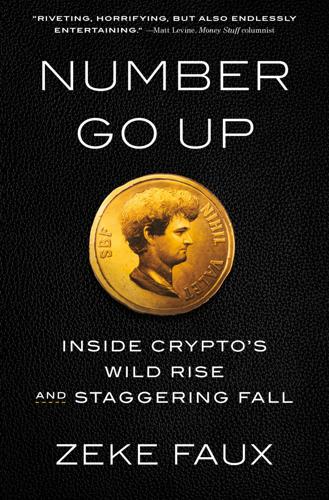
Number Go Up: Inside Crypto's Wild Rise and Staggering Fall
by
Zeke Faux
Published 11 Sep 2023
Scum, 150, 158, 159 “the Drowning Child” thought experiment, 81 Drudge Report, 10 drugs at ApeFest, 152, 157 Crypto Capital and, 62 cryptocurrencies and, 19, 28 in Puerto Rico, 116 traffickers in Bahamas, 77 DuckTales, 55–56 E Eagle, Ryan, 100 earning to give, 82–83 Economic Club of New York, 78–79 The Economist, 168 effective altruism movement Alameda and, 86, 223 Bankman-Fried and, 73, 75, 81, 83, 91–92 beginning of, 82 described, 73, 92 “the Drowning Child” experiment and, 81 earning to give, 82–83 Ellison and, 85–86 FTX’s bankruptcy and, 216 Future Fund, 228–229, 231 risk and, 223–224 Singh and, 85 Wang and, 85 e-gold, 37 Eisenberg, Avi, 238 electricity used by “mining,” 18, 20 El Faro, 199 Ellison, Caroline background, 85–86 Celsius and, 164 as cooperating witness against Bankman-Fried, 235 market strategy of, 225 move to Hong Kong by, 223 relationship with Bankman-Fried, 228 run on Alameda Research and, 226 El Salvador Bitcoin as official currency of, 199–201, 202–204 Bitcoin City plan, 201–202 El Zonte, 202–203 Mallers and, 26 Tether in, 203 El Zonte, El Salvador, 202–203 Eminem, 142, 157 environment and “mining,” 20 EOS, 49, 64 Ethereum, 49, 113, 127, 159 EverQuest, 33, 34 F Facing Up to Scarcity: The Logic and Limits of Nonconsequentialist Thought (Fried), 81–82 Fallon, Jimmy, 141, 158 FBI Bitcoins stolen from Bitfinex, 105–107 cryptocurrency cases and, 105 Devasini and Bitcoins seized by, 109 Felch, Alpheus, 71 Ferrell, Will, 17 “fiat money,” 16 Financial Investigation Agency (British Virgin Islands), 12 Financial Times, 138 Fireblocks, 103 Five Star Movement, 44 FODL Finance, 110 Forbes, 3, 74–75, 99, 168 Fortune, 168 Founders Fund, 29 Fried, Barbara, 81–82 FTT, 214, 216 FTX ability to trade “on margin” on, 224, 232 Alameda Research as liquidity provider to, 224 Axie Infinity and, 124 Bankman-Fried on reason for failure of, 232, 233 bankruptcy declaration by, 216, 218 Binance and, 79 Bored Apes and, 154–155 Devasini’s refusal to make loan to, 231 endorsements of, 89–90 founding of, 87 headquarters of, 23 loan to Alameda Research, 223, 226 “mis-accounting” of funds, 228 naming rights for Miami Heat’s NBA arena, 15, 23, 89 “pig butchering” and, 231 professional video-gaming team sponsorship, 89 relocation to Bahamas of, 77–78 revenues, 79 run on, 214–215 success of, 88 Tether and, 23 venture capital and, 74, 89 Yuga Labs and, 154–155 Zhao and, 213, 215–216 Future Fund, 228–229, 231 Fuxa, Marco, 42, 47 G Galois Capital, 236 Gambaryan, Tigran, 105 Gambling Apes, 159 GameStop, 10 García, Mario, 202–203 “Gargamel,” 144 “gas fees,” 149 Gemini, 166 Genesis Global, 166 George, Errol, 12 Gerard, David, 167 “Gilfalicious” (Morgan), 99 Glenn, Martin, 241 Global Anti-Scam Organization, 175–176, 178 “gold farmers,” 34 Goldman Sachs and IGE, 34 “Gordon Goner,” 144, 156 Green, Seth, 146 Greenberg, Andy, 98 Grillo, Beppe, 44 H hedge funds.
…
Then, in 2012, Bankman-Fried went to a talk by Will MacAskill, a twenty-five-year-old doctoral student at Oxford who was trying to turn Singer’s ideas into a movement. MacAskill and his collaborators aimed to use mathematical calculations to figure out how individuals could do the most good with their money and time. They dubbed their movement “effective altruism.” Over lunch at Au Bon Pain, MacAskill told Bankman-Fried about one of his ideas: “earning to give.” He said that for someone of Bankman-Fried’s mathematical talents, it might make sense to pursue a high-paying job on Wall Street, then donate his earnings to charity. Effective altruists calculated that a few thousand dollars spent on insecticide-treated bed nets in Africa could prevent one death from malaria.
…
GO TO NOTE REFERENCE IN TEXT who’d received a $5,700 donation: Cheyenne Ligon, “The ‘SBF Bill’: What’s in the Crypto Legislation Backed by FTX’s Founder,” CoinDesk, November 15, 2022. GO TO NOTE REFERENCE IN TEXT “weird brand-building exercises”: Sam Harris, “Earning to Give: A Conversation with Sam Bankman-Fried,” Making Sense, December 24, 2021. GO TO NOTE REFERENCE IN TEXT ultramarathon running record: Mercury News, “Saratogan Nishad Singh Sets the World Record for Fastest 100-Mile Run by a 16 Year Old,” San Jose Mercury News, September 10, 2012.
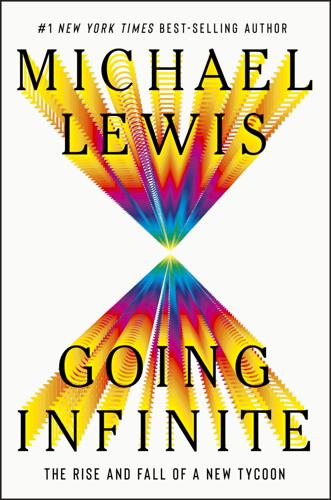
Going Infinite: The Rise and Fall of a New Tycoon
by
Michael Lewis
Published 2 Oct 2023
All those people you might have saved if you had become a banker and given away your money would die. Thus anyone with the ability to go to Wall Street and make vast sums of money had something like a moral obligation to do so—even if they found Wall Street faintly distasteful. “Many lucrative careers are really pretty innocuous,” said MacAskill, helpfully. Earn to give, MacAskill called his idea. His final slide was an invitation: “If you are convinced to any extent by the arguments given above, please come up and speak with me afterwards.” Even before he was done, he knew the sort of person who’d be coming up to speak with him: the sort of person who scored an 800 on their math SAT, and understood that the test was too crude to capture their full aptitude.
…
Despite having the geekiest email address ever† I was super impressed by him. He was brought up as a utilitarian by his parents, two Stanford professors, is serious, dedicated, and committed to doing good, and seems really smart and sensible too (i.e. takes some of the weirder ideas seriously, but isn’t fanatic about them). He’s thinking about earning to give or going into politics. Sam was only a step behind the first people responding to this new call to arms. That fall of 2012, a student of Peter Singer’s at Princeton had just become the first college student, to Singer’s knowledge, to take a job on Wall Street for the express purpose of making money to give away.
…
Leopold Aschenbrenner, who had entered Columbia University at the age of fifteen and graduated four years later as class valedictorian, had just declined a spot at Yale Law School to work for this new philanthropy. Their boss, a former Oxford philosopher named Nick Beckstead, was also present, as was their spiritual guru, Will MacAskill—who was of course in some way responsible for everyone, including Sam, even being there. Since MacAskill had first sold Sam, back in the fall of 2012, on the idea of earning to give, the EA movement had obviously changed. It had become a lot less interested in saving the lives of existing human beings than future ones. In early 2020, movement cofounder Toby Ord had published a book, The Precipice, which laid out where his thinking (and that of everyone in the penthouse) had been for a while now.
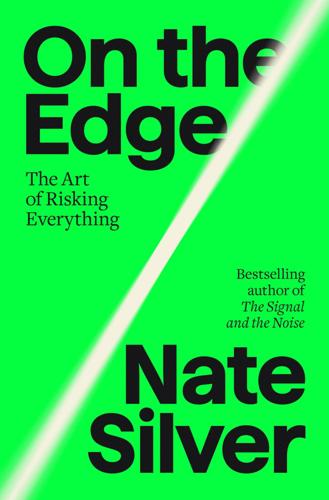
On the Edge: The Art of Risking Everything
by
Nate Silver
Published 12 Aug 2024
He’d first met SBF in 2012, when Bankman-Fried approached him following a lecture that MacAskill gave at MIT centered around the concept of “earning to give”—basically making as much money as you can, and then donating a substantial fraction of it to charity. This is a classic EA idea, one that prioritizes the actuarial bottom line of net utility above the feel-good aesthetics of charity. Who does more good for the world: an idealistic twentysomething who works for poverty wages for an NGO in some third-world country, or a hedge fund guy who makes $10 million a year and then donates half of his earnings, enough for the NGO to hire a hundred idealistic twentysomethings? Personally, I think earning to give has a compelling logic to it, even if it’s surely also sometimes used to rationalize self-interested behavior.
…
Strangelove, 344–45, 425 Dryden, Ken, 94 Duke, Annie, 90, 104–5, 116, 120, 230 Dunst, Tony, 95 Dwan, Tom “durrrr,” 96n, 237–38 dystopias, 483 E e/acc (effective accelerationism), 411–12, 483 earning to give, 341–42 economist brain, 483 edge, 13, 21–22, 63, 86, 158, 396n, 483 edge cases, 484 Edwards, Paul, 424n effective altruism (EA) AI and, 21, 344, 348, 355, 359, 380 AI existential risk and, 21, 456, 457 bednets, 479 defined, 352, 484 earning to give and, 341–42 futurism and, 379–80 government spending and, 360n Great Man Theory and, 344 impact of, 357–58 impartiality and, 358–59, 366–67, 377 independence and, 358 overfitting/underfitting and, 361, 361, 362–68 poker and, 347–48, 367 politics and, 377–78 prediction markets and, 369 quantification and, 345–51, 359–60 rationalism and, 354–55 River and, 343 River-Village conflict and, 377 SBF and, 20, 340–42, 343, 374, 397–98, 401 self-interest and, 344–45 Upriver and, 20–21 utilitarianism and, 359–61, 362–63, 533n varying streams of, 355–56, 356, 380–81, 533n wealthy elites and, 344 See also moral philosophy effective hedonism, 375–77, 484 Ehrlich, Paul, 412n, 463–64, 542n Einhorn, David, 222, 336 election forecasting, 13–14, 16–17, 27, 137, 182n, 433, 448n Ellison, Caroline, 385, 387, 388, 396, 397, 401 Elon Musk (Isaacson), 251 Emanuel, Ezekiel, 9 empathy, strategic, 224–25 empiricism, 484 End of History and the Last Man, The (Fukuyama), 467–68 Enlightenment, 434, 456, 461, 462–63, 469, 472, 484, 488 envy-based economy, 329, 484 Enzer, Sam, 382–83, 385–86 epistemic humility, 484 epistemic rationality, 372–73, 495 equilibrium.
…
Nor are effective altruists typically big partiers; the movement is known for its asceticism. Instead, they tend to be earnest, True Believer types—perhaps earnest to the point of being gullible. If you believed that SBF really was Robin Hood, or a woke pirate creating Ponzi-like crypto tokens to redistribute wealth to good causes…hey look, I’m not against the idea of earning to give. But believing all of this required placing a lot of faith in a founder’s complicated story. It was going to select for a different and more idealistic type of employee—progressive do-gooders like the Chapskys—and not the competitive, egotistical capitalists that you’d typically get at a banking or finance startup.
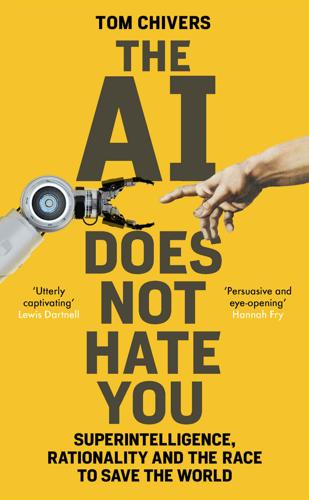
The Rationalist's Guide to the Galaxy: Superintelligent AI and the Geeks Who Are Trying to Save Humanity's Future
by
Tom Chivers
Published 12 Jun 2019
SSC survey results 2018 http://slatestarcodex.com/2018/01/03/ssc-survey-results-2018/ 38: The Effective Altruists 1. Peter Singer, ‘Famine, affluence, and morality’, Philosophy and Public Affairs, vol. 1(1), Spring 1972, pp. 229–43 (rev. edn) https://www.utilitarian.net/singer/by/1972----.htm 2. Benjamin Todd, ‘Earning to give’, 80,000 Hours, 2017 https://80000hours.org/articles/earning-to-give/ 3. ‘What we can achieve’, Giving What We Can https://www.givingwhatwecan.org/get-involved/what-we-can-achieve/ 4. Giving USA 2018: The Annual Report on Philanthropy for the Year 2017 https://givingusa.org/giving-usa-2018-americans-gave-410-02-billion-to-charity-in-2017-crossing-the-400-billion-mark-for-the-first-time/ 5.
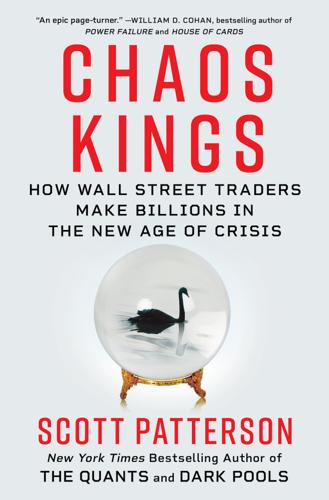
Chaos Kings: How Wall Street Traders Make Billions in the New Age of Crisis
by
Scott Patterson
Published 5 Jun 2023
A central credo was that followers of EA, as it was known, would give away a large chunk of their earnings to worthy causes. That inspired people such as Bankman-Fried to pursue career paths that would produce the highest possible winnings, resulting in the highest possible giving, a model of philanthropy called “earning-to-give.” Rather than a career in medicine or chemistry, EAs sought jobs on Wall Street and in Silicon Valley—or in crypto. By the early 2020s, longtermism had become a powerful force among America’s tech goliaths. Backers—the computer whizzes that use complex formulas to create more and more bitcoin—included Elon Musk, Bill Gates, and Jeff Bezos.
…
Shaw hedge fund, 61, 64 Daniel, Kent, 231 Dao of Capital, The (Spitznagel), 137, 272 DART (Double Asteroid Redirection Test) mission, 282, 291 Davos meetings, 119, 183–85 Dawkins, Richard, 124 Deep Green movement, 194–95 DiFrancesca, Charlie, 44 Dominion Energy, 248, 250 Doomsday Clock, 163–64, 235–36, 285 Dragon Kings Sornette’s conception of, 31, 91–92, 132–33, 142, 144–46, 202, 205, 288 Taleb’s Gray Swans and, 145–46 Tesla and, 239 Druckenmiller, Stanley, 48 Dynamic Hedging (Taleb), 13, 59, 60, 62 Dynamic Integrated Climate Economy (DICE) model, 230–31 earning-to-give model, 281 Eastbridge Capital, 49, 50 Economic Policy Institute, 122 Edge Foundation, 124, 126, 190–91 Edsall, Thomas, 34 effective altruism, 281 Electric Reliability Council of Texas, 257 Eliopoulos, Ted, 152, 153, 157–58 Elliott, Ralph Nelson, 89 Empirica Capital black swan funds used by, 113, 134 decision to shut down, 13, 96, 99 losses after the September 11 terrorist attacks and, 76–77, 80 Spitznagel’s and Taleb’s launch of, 12, 13, 61–62, 65 stock market closing after September 11 attack and, 71–72 Taleb’s decision to leave, 81–82, 99 trading strategy of, 13, 38, 66–68, 77, 94, 97, 103, 113, 143 enactivism, 208 Eno, Brian, 191–92 Environmental Defense Fund, 232, 240 Epidemic Type Aftershock Sequence Model, 288 Epstein, Jeffrey, 124 ETH Zurich, 97–98, 157, 179, 288 European Central Bank, 110 European Environment Agency, 189 Extinction Rebellion (XR), 183, 184, 185, 187, 188, 243–44 Exxon Mobil, 230, 233, 239, 251 Fabbri, Brain, 111 Fama, Eugene, 226, 228 Fannie Mae, 3, 79–80, 109 Farrell, Clare, 244 Feigl-Ding, Eric, 161–62 Ferguson, Niall, 119 Financial Crisis Observatory, 90, 92, 132, 144, 288 finite-time singularity, 132 Fink, Larry, 250 First Boston, 51, 56–57 Flash Crash (2010), 14, 127–28, 147 Fooled by Randomness (Taleb), 13, 69–70, 72, 78, 103, 218 Freddie Mac, 3, 80, 109 Freedom House, 256 Freefall, 14 Friedman, Thomas, 19 Friedman, Milton, 226 FTX Trading, 281, 284 Fukushima disaster, Japan, 191–92 Funhouse, 3 Futureset, 267 Galleon Group, 55 Gates, Bill, 124, 251, 281, 282 Gauss, Carl Friedrich, 74 Gell-Mann, Murray, 124 Gellman, Barton, 256 genetically modified organisms (GMOs), 193–94, 195–96, 213–15, 216, 217 Ghosh, Amitav, 107 Gladwell, Malcolm, 58, 65, 70, 77 Global Bubble Status Report, 177, 178 Global Financial Crisis of 2008, 3, 14, 17, 27, 31, 35, 61, 69, 90, 115 Global Systemic Risk project, Princeton University, 31 Global Warming Policy Foundation, 194, 243–44 Glover, Robert, 251 Goldman Sachs, 23, 67, 168, 220, 227, 228, 229, 263 Goldstone, Jack, 29–30 Gorbachev, Mikhail, 39, 106 Gould, Jay, 95 Graham, Benjamin, 275 Graham, Lindsey, 236–37 Grantham, Jeremy, 178–79 Great Moderation, 35, 99 green energy sector, 177, 178, 252 Greenspan, Alan, 35, 48, 52, 84–85, 89, 99, 137 Gray Swans, 27, 31, 105, 114, 145–46, 256, 266 Guardian, 6, 108, 124, 185–86, 188, 216 Guterres, António, 290 Harr, Pat, 258 Hasen, Richard, 256 Hayek, Friedrich, 121, 136 Horstmeyer, Derek, 276 Hume, David, 66 Hundt, Reed, 249 Hurricane Ian, 290 Hurricane Ida, 258 hyperobjects, 107 Icahn, Carl, 6 Idyll Farms, Michigan, 12, 129, 137–38, 157, 271, 287 Ignatius, David, 102–3 Illmanen, Antti, 172–73 Indosuez, 55–56 Insana, Ron, 72–73 Intergovernmental Panel on Climate Change (IPCC), 251 International Monetary Fund, 286 J.P.
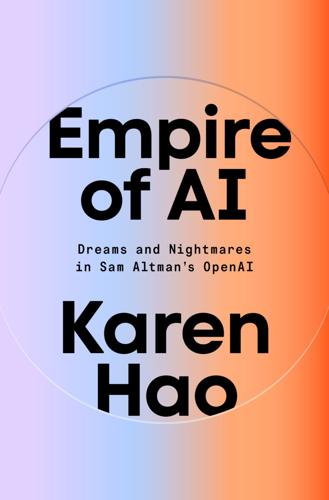
Empire of AI: Dreams and Nightmares in Sam Altman's OpenAI
by
Karen Hao
Published 19 May 2025
He laid out the math based on a series of arbitrary numbers: graduates who worked to get rich might on average fund two charity workers, each working at charities ten times more cost-effective than one they would have otherwise worked for. Half of the benefits they produced if they chose the charity route would also happen with or without them anyway. His argument would be encapsulated in one of the movement’s most popular mantras: “Earn to give.” Under the logic of expected values, the founding EA philosophers also developed a framework for identifying the highest priority problems. Such problems need to be “big in scale,” boosting their expected value; “tractable,” possible to fix for proportionally little time or money; and “unfairly neglected,” suffering severe and disproportionate underinvestment.
…
More recently, a new tech billionaire had entered the scene: Samuel Bankman-Fried, a rapidly rising star for his wild success cofounding the crypto exchange FTX and crypto trading firm Alameda Research. Bankman-Fried, or SBF as he is known, credited EA for his origin story. A physics major at MIT, he said he had wanted to be an academic before MacAskill convinced him over lunch of the moral superiority of “earn to give.” SBF subsequently set his course on making himself as rich as possible in order to eventually, he pledged, put it all into philanthropy. As he amassed his wealth in remarkably short order, SBF donated tens of millions to political candidates, both Democrat and Republican, including the first ever EA-backed candidate in 2022 in Oregon’s Sixth Congressional District (who ultimately didn’t win the primary).
…
See child sex abuse material CUDA (Compute Unified Device Architecture), 61 curie, 150 Curie, Marie, 150 Curry, Steph, 231 cybersecurity, 114, 147, 148, 179–80, 380 Cyc, 97 D DAIR (Distributed AI Research Institute), 414–15, 419 Dalí, Salvador, 234 DALL-E, 11, 114, 234–39, 241–42, 258–59, 269 avocado armchair, 235, 237–38 Damon, Matt, 317–18 D’Angelo, Adam, 321 Altman’s firing, 7, 11, 366, 367 Altman’s leadership behavior, 324–25, 352, 357, 359–60, 361–62 Dartmouth Summer Research Project (1856), 89–90, 94 data annotation, 15, 178, 189–90, 192–223, 414–17 Kenya workers, 15, 18, 190–92, 206–13, 415–17 Scale AI, 202–6, 213–14 self-driving cars, 193–95, 202–6, 214–15 Venezuela workers, 195–96, 198–202, 203–4, 218 data centers, 15, 274–78 Altman’s compute phases, 278–81 carbon emissions, 79–80, 159–60, 171–73 in Chile, 285–91, 295–99 energy usage, 77, 80, 274–78, 280–81, 288–90, 294 Google, 274–75, 285–91, 295–96 in Uruguay, 291–96 “data colonialism,” 103–4 data filtering, 137, 155, 177–78 Dataluna, 289–90 data privacy, 19–20, 33, 56, 103, 136, 186, 301, 308, 310, 413, 416 data scraping, 102–3, 114, 134–38, 151–52, 182–84, 384 “data swamps,” 137–38, 212–13 Data Workers’ Inquiry, 415–17 davinci, 150 da Vinci, Leonardo, 150 Dean, Jeff, 25, 158, 161–62, 163–65, 170–72 deepfakes, 79–80, 239, 391 deep learning, 98–101 discriminatory impacts of, 57, 108–9 ImageNet, 47, 100–101, 117–18, 259 limitations and risks of, 106–10 DeepMind, 6, 17, 24–26, 48, 66, 158–59, 261–62, 384–85 AlphaFold, 309–10 AlphaGo, 59, 93 OpenAI and ChatGPT, 114, 119–20, 132, 159, 261–62 scaling, 132, 158–59 Democratic Party, 41, 231 Dempsey, Jessica, 104n dense neural networks, 177–78 Deployment Safety Board (DSB), 248, 323–24, 346, 350, 362, 363 Desmond-Hellmann, Sue, 376 Díaz Bejarano, Nicolás, 297–99 diffusion, 235–36, 375 Stable Diffusion, 114, 137, 236, 242, 284 Digital Realty, 274 disaster capitalism, 189–223 discriminatory impact, 51–52, 57, 108–9, 114, 137, 161–64, 179, 310, 419, 432n dissolving empire, 418–19 distillation, 177, 307 distress passwords, 149 Divorce, The, 156–57, 181, 213, 230, 233, 242 DNNresearch, 47, 50, 98–99, 100 Doctor Strange (movie), 303 Doomers (Doomerism), 233–34, 250, 267–68, 305–6, 308, 310, 311, 314, 315, 317–18, 319, 377, 387, 388–90, 396, 402, 403–4, 419 doomsday scenario, 26–27 Dorador, Cristina, 283 Dota 2, 66–67, 71, 129, 144–45, 244–45 Dowling, Steve, 154, 256, 382–83 doxing, 303 drinking water. See water resources DUST, 269 Du, Yilun, 121 E “earn to give,” 229, 231 economic growth, 38–39 edge cases, 112 Edison, Thomas, 54, 55 education, 420–21 effective accelerationism (e/acc), 233 effective altruism (EA), 55–56, 228–33, 321–22, 388–89 Effective Ventures Foundation, 321–22 Ehlers-Danlos syndrome, 257, 338 election of 2016, 38, 42, 51–52, 321 ELIZA, 95–97, 111, 420–21 empires of AI, 16–20, 197, 222–23, 270, 414, 418, 420 energy usage, 77, 80, 160, 171, 173, 186–87, 275–78, 280–81, 288–90, 294, 295, 419, 451n Enigma, 91 environmental impact, 20–21, 57, 79–80, 84, 89, 134, 165, 170–71, 309, 417, 420.

The Richest Man in Babylon
by
George S. Clason
Published 10 Jun 2019
The King was thoughtful for some time. Then he asked, “Why should so few men be able to acquire all the gold?” “Because they know how,” replied the Chancellor. “One may not condemn a man for succeeding because he knows how. Neither may one with justice take away from a man what he has fairly earned, to give to men of less ability.” “But why,” demanded the King, “should not all the people learn how to accumulate gold and therefore become themselves rich and prosperous?” Quite possible, your excellency. But who can teach them? Certainly not the priests, because they know naught of money making.” “Who knows best in all our city how to become wealthy, Chancellor?”
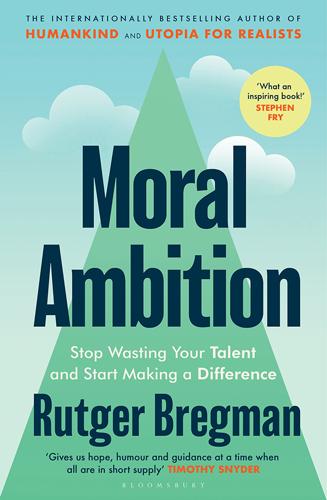
Moral Ambition: Stop Wasting Your Talent and Start Making a Difference
by
Bregman, Rutger
Published 9 Mar 2025
More than a few economists warned the programme would never be ‘cost-effective’, and the money would be better spent elsewhere. We now know those efforts saved over 25 million lives, in part because they caused the price of HIV drugs to drop dramatically.33 What also bothered me about those effective altruists was that some went into finance so they could donate as much money as possible (‘earning to give’, they called it). This was right after the 2008 crash, when banks were being propped up using hundreds of billions in taxpayer dollars. At the height of the Occupy Wall Street protests in 2011, William MacAskill even managed to give a talk at Oxford titled ‘Want an ethical career? Become a banker.’
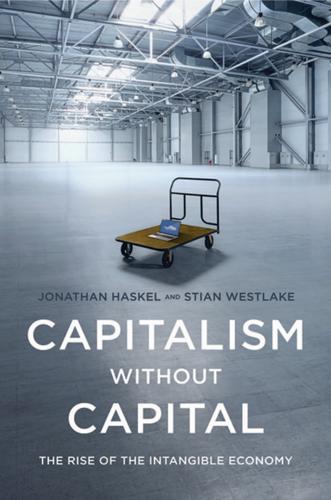
Capitalism Without Capital: The Rise of the Intangible Economy
by
Jonathan Haskel
and
Stian Westlake
Published 7 Nov 2017
Managers at public companies are often paid in equity (shares or options), which can only be exercised after a period of years (the “vesting period”); once options vest, managers often exercise the options and sell the shares, which makes the managers particularly sensitive to their employer’s share price at that moment. It turns out that managers are unusually likely to cut R&D spending in a quarter when they have a lot of equity vesting. Since equity vesting periods are set years in advance, this seems like prima facie evidence that managers are cutting intangible investment to improve earnings to give their stock price a boost when it matters most to them. A second study by Bernstein (2015) is also revealing, but in a different way. Bernstein began by observing that, when a private company decides to go public, it takes time—and there’s many a slip between start-up and IPO. For some companies, economic times are smooth and they go public.
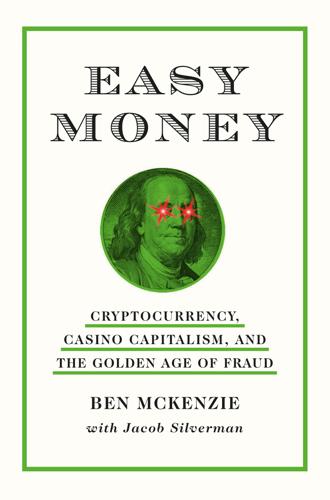
Easy Money: Cryptocurrency, Casino Capitalism, and the Golden Age of Fraud
by
Ben McKenzie
and
Jacob Silverman
Published 17 Jul 2023
That said, if utilitarianism were to ever be practicable in real life, Sam’s mathematical mind was as good a fit as any. He was born into it, steeped in his parents’ own belief in utilitarianism. Effective altruism immediately resonated with him. Sam later claimed he had found his mission in life: Make a bunch of money and then give it away. Or as MacAskill put it: “Earn to give.” In order to advance Sam’s EA aspirations, MacAskill offered him a piece of advice: Apply for an internship at Jane Street Capital. The prestigious Wall Street trading firm is known for hiring the most brilliant grads from elite universities. Sam got the internship, excelled in it, and was offered a full-time position following graduation.

Supremacy: AI, ChatGPT, and the Race That Will Change the World
by
Parmy Olson
The idea, which was spawned by a handful of philosophers at Oxford University and then spread like wildfire through college campuses, was to improve on traditional approaches to charity by taking a more utilitarian approach to giving. Instead of volunteering at a homeless shelter, for instance, you could help more people by working at a high-paying job like a hedge fund, making lots of money, and then giving that money to build several more homeless shelters. The concept was known as “earning to give,” and the goal was to get as much bang for your charitable buck as possible. Sometimes effective altruists were split on the best way to do that. Some might say that you could impact more people by donating to global causes like poverty than to local US or European causes like homelessness. Others flipped that around.
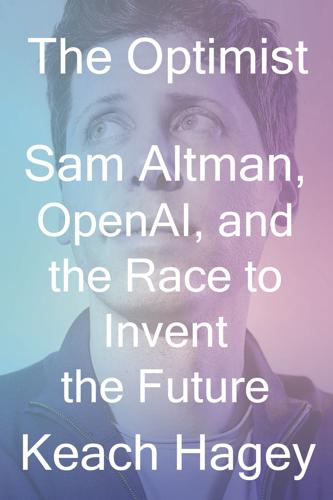
The Optimist: Sam Altman, OpenAI, and the Race to Invent the Future
by
Keach Hagey
Published 19 May 2025
In 2009, MacAskill and Ord co-founded an organization called Giving What We Can, which encouraged people to donate at least 10 percent of their income to the poor—a secular person’s tithe, essentially—via organizations that had been rigorously scrutinized for their effectiveness. Two years later, MacAskill co-founded 80,000 Hours, a nonprofit organization that counseled graduates on how to make the biggest impact on the world. Then, in 2013, MacAskill brought his message of “earning to give” to a math prodigy and physics major at MIT named Sam Bankman-Fried, convincing him to go into finance. Two years after that, 80,000 Hours joined that summer’s YC batch. SBF, as he became infamously known—first as the CEO of FTX and a cryptocurrency mogul, and then as a criminal—would become one of EA’s biggest donors before he was indicted for fraud and conspiracy in 2022.
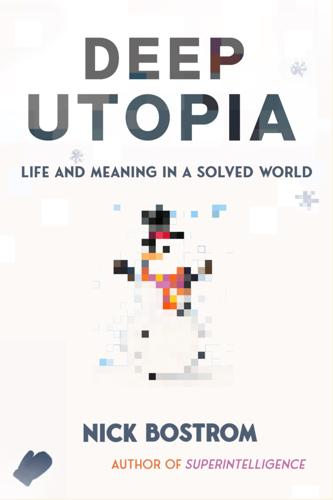
Deep Utopia: Life and Meaning in a Solved World
by
Nick Bostrom
Published 26 Mar 2024
Carnival Kelvin: We’re late, but we might still be able to catch the end. Firafix: We can head down that alley, then cut across the College courtyard. That should be the fastest way. Tessius: Whoa the carnival is in full swing. Let’s see if we can plow through the throngs. Drunk student #1: I’m pulling the rope sideways. What are you doing? Drunk student #2: Earning to give. Drunk student #1: But you have a butler! Drunk student #2: To prevent burnout. Drunk student #1: Man. Drunk student #3: His dad owns a warship! Drunk student #2: Oh, the man-o’-war? The fart won’t sell it. Hey, let’s go down to the wharf and spray-paint Greenpeace on it. Drunk students #1 and #3: Yeah!